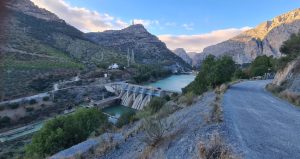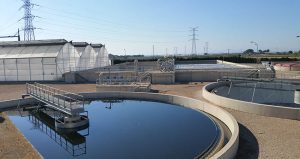Despite bad results European Commission wants to continue with Water Framework Directive

-
 Adriaan van Hooijdonk
Adriaan van Hooijdonk
Share article:
The new EU Environment Commissioner Virginijus Sinkevičius wants to continue with the Water Framework Directive. Despite disappointing results to improve the quality of surface and groundwater within the EU, he calls on Member States to speed up implementation. On 11 December, the European Commission published its fitness check of the WFD and daughter directives, concluding that it is ‘fit-for-purpose’.
More than half of the European surface and groundwater still does not meet the WFD-requirements, emphasized the environment commissioner after the European water conference in Zaragoza on December 11. In February 2019 when the European Commission published its assessment of the national river basin management plans for the 2016-2021 period and concluded progress has been made for Europe as a whole, but only 40% of Europe’s lakes, rivers, estuaries and coastal waters complied to a minimum ‘good’ or ‘high’ ecological status in 2010-2015.
Reduce administrative burden
Despite the disappointing results, the Environment Commissioner wants to continue with the WFD. Sinkevičius therefore calls on the member states to comply with the agreements in the WFD. The European Green Deal that European Commissioner Frans Timmermans presented last week can, according to him, provide a step forward. The ‘fitness check’ of the WFD shows that there is room to reduce the administrative burden that the introduction entails. Smarter and more efficient ways of monitoring and electronic reporting, in combination with a more intensive use of digital and earth observation tools, can contribute to this, the environment commissioner expects.
No shortcomings in the legislation
The fact that the objectives of the WFD have not yet been fully achieved is, in his view, largely due to funding problems, slow implementation by the Member States and insufficient integration of environmental objectives into sectoral policies, rather than shortcomings in legislation. According to the evaluation, the Water Framework Directive is sufficiently flexible to tackle new problems such as climate change, water scarcity and emerging substances (for example micro-plastics and pharmaceutical products).
Fundamental role for WFD
Aqua Publica the association of public water operators welcomes the outcome of the evaluation and supports strong legislation. “In our changing world, it is essential to preserve our limited essential resources and equally protect water’s natural quality and quantity. In this context, the WFD has fundamental role to play”, states Aqua Publica.
















